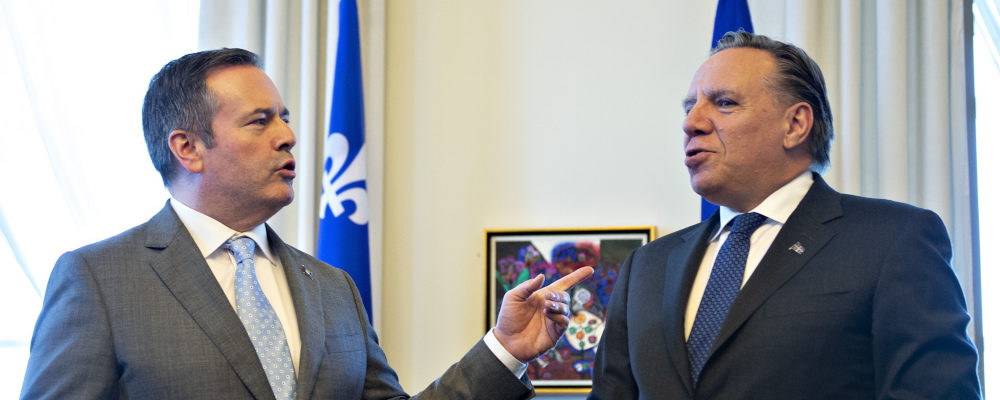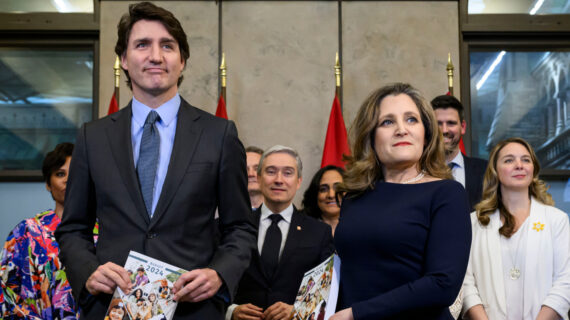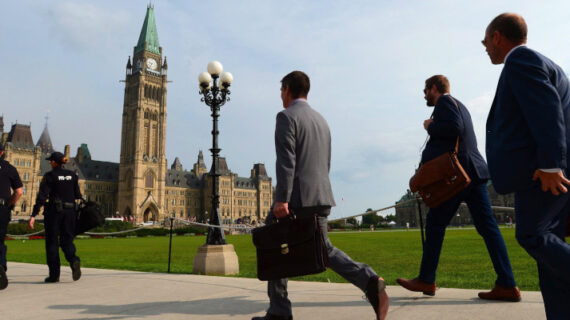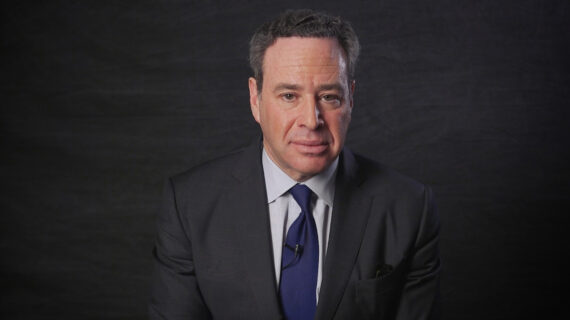Alberta’s announcement confirming an equalization referendum in October has already spurred considerable debate within Alberta as well as nationally — this will only grow as we get closer to the vote.
Given how difficult it can be to get people’s attention directed at a thorny and complex issue like federal-provincial fiscal flows, one could argue that in this respect the referendum is already a success.
Some of the early commentators, however, are unfairly trying to marginalize this grassroots initiative.
Some emphasize an overly-literal reading of the referendum question (as in the June referendum piece in The Hub by the well-respected economist Trevor Tombe). Others like law scholar Eric Adams, use narrow interpretations of the 1998 Quebec secession reference to claim that the referendum is illegitimate. Generally, though, pundits offer little more than speculation about the strategic political value of the referendum in light of other possible avenues, without acknowledging the challenges Albertans face in gaining Canada’s attention.
This week, Tombe added a new piece on the big picture behind this referendum, emphasizing that the $630 billion Albertans have contributed to Canada since 1960 is mostly a function of higher incomes as opposed to a structural unfairness. While factual analysis and critique is always welcome, all these approaches minimize the potential value of this referendum to Albertans as well as the need for it.
Not only is equalization bloated, flawed, and unaffordable, but the federal spending power also forces Albertans to subsidize the rest of the country in too many other ways.
Before addressing what the equalization referendum is really about, I will first add context to the vast sums that get transferred via Ottawa out of Alberta, since that is the fundamental motivation for this whole exercise.
Albertans’ unfairly high net contribution
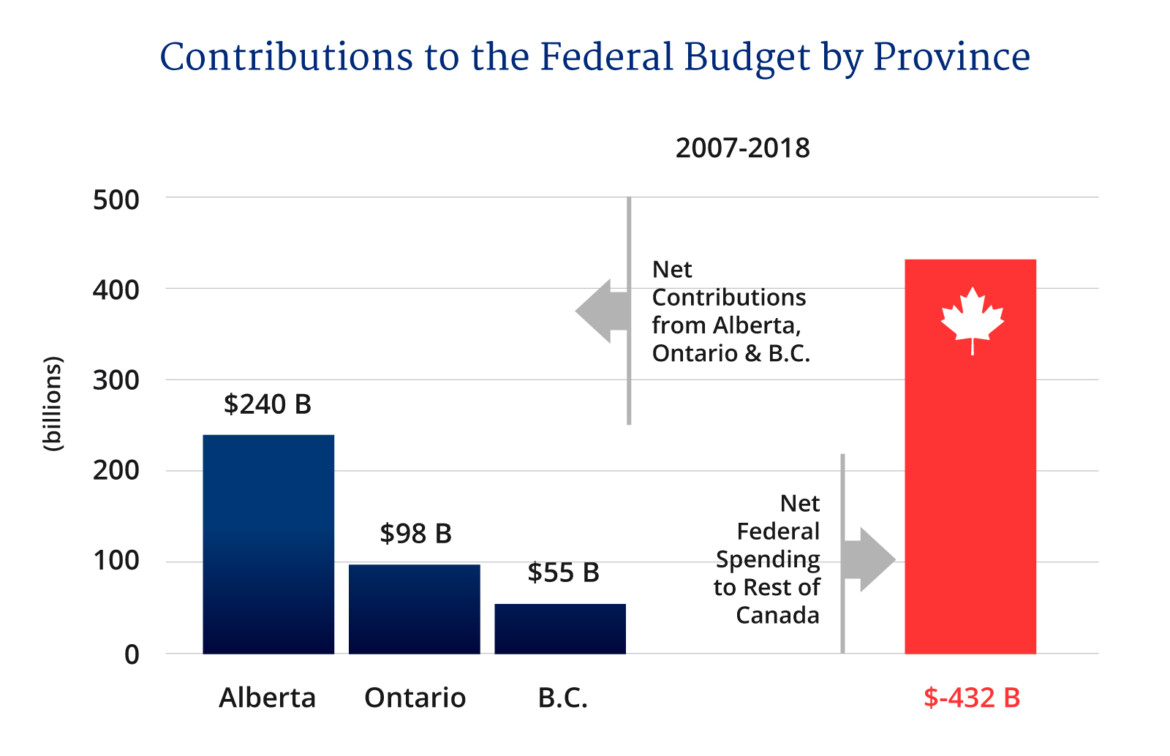
As the figure above shows, Albertans contributed roughly $5,000 more per person in combined taxes to Ottawa than was spent back in Alberta from 2007-2018. That’s not the total — the annual average was about $20 billion, or $20,000 per family of four. That’s a net $240 billion (unadjusted) that was taxed from Albertans and spent by Ottawa in other provinces.
Given that Albertans have higher incomes than other Canadians, of course one would expect them to pay a larger share of federal revenues. But that $20 billion is not, as is too often claimed, merely a function of higher incomes.
The net total combines the outflow (what is sent in taxes) minus the inflow (that which is spent in the province). Tombe calculates the revenues from higher incomes as 55 percent of the $630 billion since 1961: that leaves 45 percent — or about $9 billion a year over the last decade — a function of federal spending choices.
Tombe points out Alberta’s higher employment rates mean less seniors and EI benefits — but he also estimates that only explains 18 percent of the phenomena, which means federal spending choices more generally skew very hard to the eastern third of the country.
There is also a third leg in this stool: the sheer size of the federal government is why Alberta’s contributions add up to that $20 billion per year. Incomes might determine what share we pay, but growing federal expenditures determine the dollar amount that is taken.
While economists rightfully steer clear of the word “fairness,” when you consider how much Albertans subsidize other provinces due to federal intrusion in provincial affairs, and how little they get back either in terms of respect or support for their children’s economic future, it is little wonder that Albertans are fed up and seeking avenues to get a fairer deal in the federation.
Alberta’s Equalization Referendum
The provincial government has chosen a creative path for this, based on common-sense and the Supreme Court’s 1998 Quebec secession reference. There, despite what some constitutional experts might argue, the Court repeatedly affirms a principle beyond just secession that “democratic expressions for change” and “legitimate initiatives” create a “reciprocal duty” to respond and even to hold “constitutional discussions” (s.2, 69, 150).
In order to meet this threshold, the referendum question asks whether Albertans support removing s. 36(2) from the Constitution.
As noted above, the context for this is an overall sense of unfairness, but the tactic is targeting equalization with a constitutional referendum. While most agree this program needs a serious overhaul, the commentators getting most of the airtime are too eager to dart away from the plot and speculate on the strategic value or get overly literal in their presentation of what everyone acknowledges is a non-binding referendum.
Opponents argue that the referendum is about, and only about, whether you are in the camp who “disagree with the principle of equalization payments” or “agree with the principle of supporting regions that have a hard time delivering basic public services.”
This is a false dichotomy. One can support helping struggling regions but also think a) the commitment to making equalization payments should not be in the Constitution; and/or b) the federal government is so involved in funding provincial jurisdiction that the bloated equalization program is redundant; and/or c) Albertans are tired of paying and paying while being ignored or taken for granted and this vote will stir much-needed debate and open up re-negotiations for equalization and other transfers that can modestly but importantly improve our future and unity in Canada.
As noted above, Albertans in overall terms sent an average of $20 billion annually over 12 years and equalization was only $3 billion of that cumulative fiscal flow.
To claim that reducing or eliminating this one program means ending support for poorer provinces is manifestly unfair. Equalization could be abolished tomorrow and the wealthier jurisdictions will still be having billions redistributed to the so-called “have-not” provinces via transfers like the Canada Health Transfer, Canada Social Transfer, personal benefits like OAS, CPP, EI, and child benefits, as well as various spending decisions which, as this Library of Parliament chart shows below, clearly favour the provinces east of the Ottawa River.
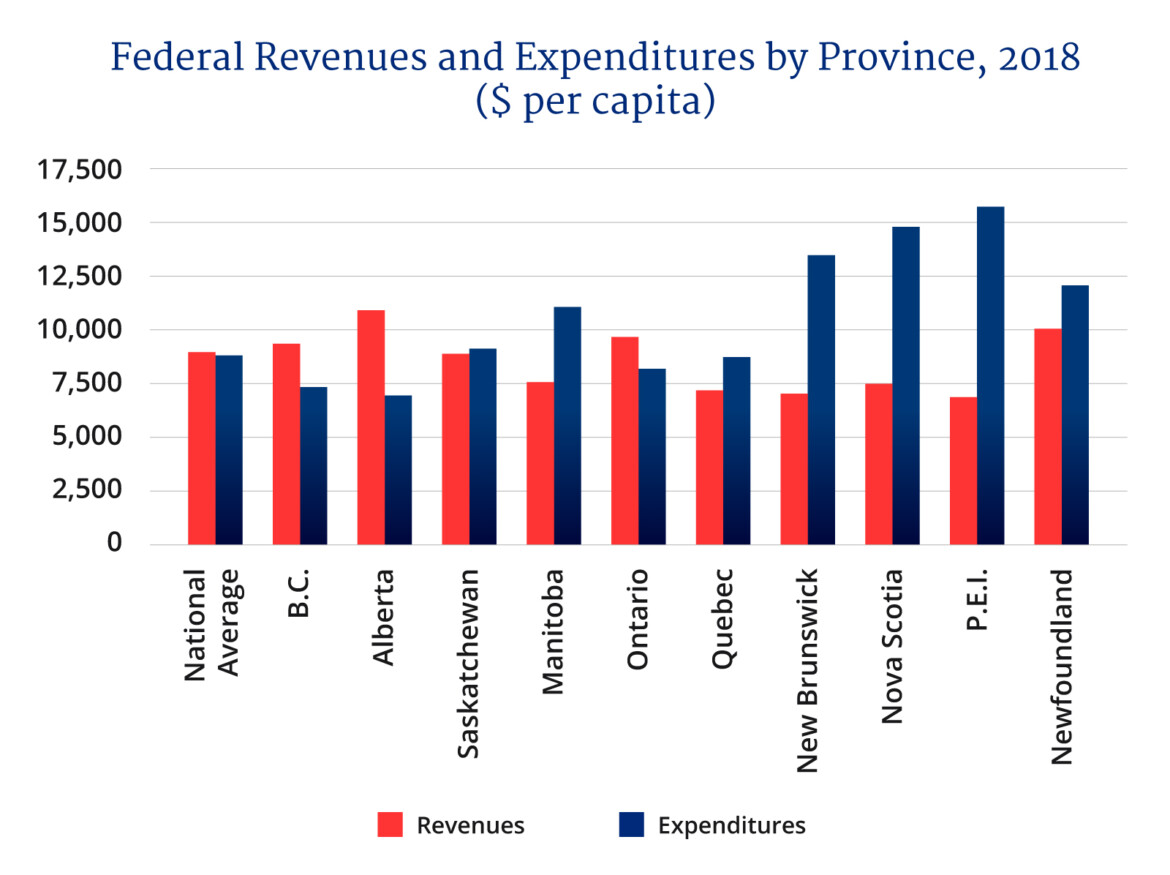
Opponents acknowledge that some supporters see the referendum as an outlet for “other grievances,” or a tit-for-tat response along the lines of: “If Quebec opposes a key source of fiscal benefits to Alberta (oil and gas)…then so too should Alberta oppose a key source of theirs (equalization).” Economists have also shown legitimate criticisms of the way the equalization program operates, while insisting that’s not what the referendum is about.
While these aren’t fanciful characters drawn from the cast of referendum supporters, there’s a bit of straw coming out of their collars. Referendum supporters are not just looking to blow off steam. Instead, they know full well this is ultimately a tactic, but a legitimate one given how much Albertans have contributed, how much they’re struggling, and how seriously flawed and redundant equalization has become in 2021.
Abolishing the equalization program is clearly outside Alberta’s power and nobody actually thinks it will happen, any more than they believe 7 provinces with 50 percent of the population will agree on other significant constitutional changes.
Yes, the referendum’s words call for that. But the voice being summoned for such a call is that of a frustrated 11.5 percent of the country who feel powerless despite their powerful contributions to Canada. That voice has been repeatedly ignored, even mocked. That voice looks to the federal political scene and usually sees one party that takes it for granted and another that writes it off.
That voice from Alberta cannot alter anything the federal government does. It can, however, yell loudly enough that more fair-minded Canadians take a look at Alberta’s grievances and consider whether fairness or national unity requires meaningful reforms. The 55 percent of Canadians in Ontario and BC might also take a look and realize they too are negatively impacted by unfair policies like equalization almost as much as Albertans.
The practical conclusion is that whatever reforms one might wish, opening negotiations after a strong referendum vote will help achieve them.
Regardless of what the credentialed detractors of referendums might argue, placing a referendum question to the citizenry will inevitably expand awareness and knowledge, including with regards to equalization. There will be misinformed opinions to be sure, but plenty of fair-minded and intelligent Canadians in Alberta and beyond will do their homework and they are in for a useful civics lesson.
As an Albertan, and as a Canadian, I welcome this referendum as a means of getting Canada to understand that Albertans’ frustration is legitimate, and that reforming equalization and other unfair federal spending programs is not only fair to provinces like Alberta, it is critical to the stability of Canada as a nation.

